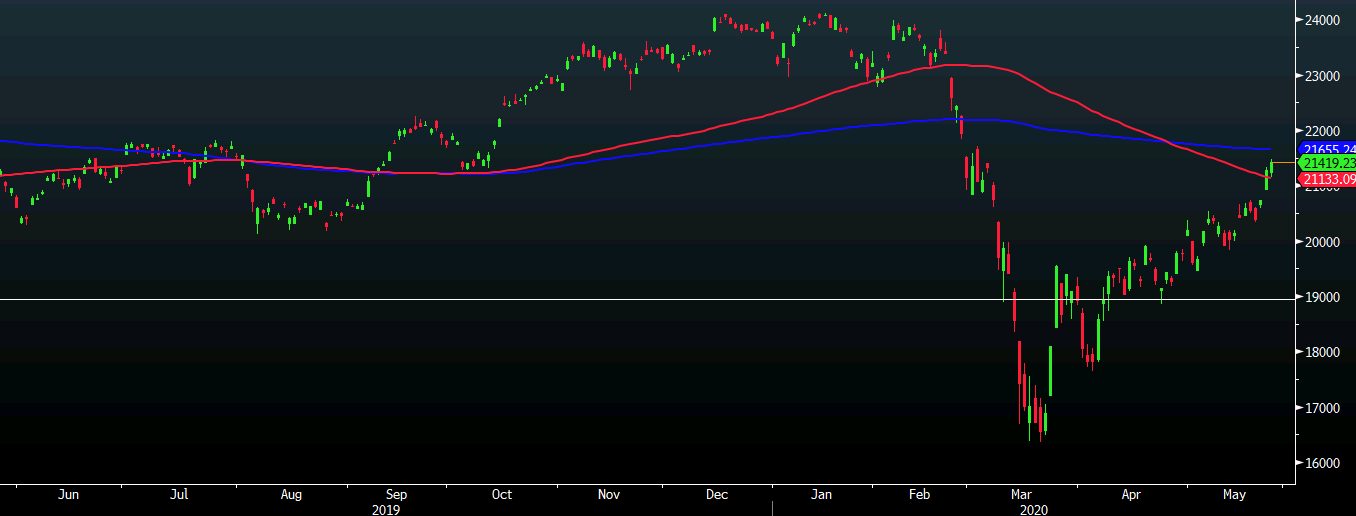Japanese stocks get a boost from more stimulus talk



Projections for the Fed:
MS add that if recession:
The Best Investment Advice George Soros Ever Gave. Here it is:
“Economic history is a never-ending series of episodes based on falsehoods and lies, not truths. It represents the path to big money. The object is to recognize the trend whose premise is false, ride that trend and step off before it is discredited.” ~ George Soros
Think about that statement for a minute. For everyone who is in the so-called bear camp, and thinks the current “recovery” belongs in quotation marks, this is an exceptionally meaningful quote.
Of course, everyone who has been bearish on the markets since 2009 has largely lost money, and been quite aggravated in the process. Had trillions in stimulus and quantitative easing not been injected into the economy (the big banks for the latter), our economy would have simply restructured and our markets would have bottomed at values far lower than they did. Bearish market participants have been investing with the philosophy that this will still happen.
Many bearish market participants have recognized the dynamic that there are long-term structural deficit and various economic issues, and that the economy is simply being goosed by trillions in cash and dangerously low interest rates. In other words, the bears scream that “the economy is unsustainable;” If and when rates rise, servicing trillions in debt is going to require even more debt issuance, leading to ever higher rates and a crowding out of the private sector. At this point, people draw different conclusions as to what happens next.
Others note that the euro is going to break apart, and it too is only being held together by programs like LTRO and other central bank intervention.
Regardless, many have come to the conclusion that our equity markets are fundamentally overvalued and do not discount the structural issues we face. The best argument I’ve heard for overvaluation is that corporate profit margins will contract rapidly when the U.S. government needs to start cutting its budget; we may be approaching that day with the creeping “fiscal cliff” at the end of the year. (more…)
Freud’s psychiatric conclusions have largely been discredited but he rightly maintains praise for understanding the central role of metaphor and narrative in human thought. Professor Cowen HERE, is only the latest to build on this theme although importantly, he concentrates on the negative, blinding aspects of the tendency. Nowhere is this more clear than in the “stories” that surround investments.
Choosing a metaphor presupposes a conclusion. For instance, there’s no way to hear “the Chinese economy is a bubble” without unconsciously associating the country’s outlook with fragility and inevitable disappearance of a soap bubble. If we describe China’s GDP as similar to a hot air balloon on the other hand, our subconscious will immediately become more suceptible to the argument that upcoming government stimulus will right the economic ship. (You see what I did there – the use of the word “ship” is insidious.)
Good metaphors are a double-edged sword and their ubiquity in stock pitches suggests investors remain on their guard, never accepting one outright no matter how successfully it seems to communicates the situation.
Governments need to tighten their monetary policies more according to Jim Rogers. Such tightening will result in stocks being crushed nevertheless.
Bloomberg: “We’re overdue for a correction” said Rogers, chairman of Rogers Holdings, said in an interview in Hong Kong. “Stock markets around the world have been going up for the past 10 months.”
“I don’t think anybody has tightened enough. I think everybody should tighten more,” he told Bloomberg. “We have huge amounts of money printed throughout the world. It’s going to cause currency instability. It’s going to cause more inflation. It’s going to cause higher interest rates.”
An extended, related video of Jim Rogers with Bloomberg is below, start from 11:00 for Jim Rogers. He talks across stocks, stimulus, commodities, and gold in particular.
One of the oddest things discussed however, toward the very end of the video, at 27:00, is how Jim Rogers is long both the U.S. dollar and gold. He’s also long the Japanese yen even though in his own words, it, like the dollar, is a ‘terribly flawed currency’.
Jim Chanos is bearish on China and I think he has a very good point. China suffers from huge overcapacity in every sector and their statistics are made up.

“Jim Chanos, head of investment firm Kynikos Associates and famous for his call to short Enron in 2001, has found his next big target.
Chanos and other China bears say the country has overcapacity in just about every sector of its economy, and the government’s massive stimulus isn’t working. They think China is simply covering things up with faulty statistics.
For example, they point to the huge reported increases in car sales in contrast to numbers showing little growth in gasoline consumption, which suggests state-run companies are buying huge numbers of cars and putting them in storage.” in The Daily Crux
 Uncle Sam isn’t in danger of losing his top credit rating, but he’s not in the greatest shape, either.
Uncle Sam isn’t in danger of losing his top credit rating, but he’s not in the greatest shape, either.
So says Moody’s Investors Service in its quarterly assessment of triple-A-rated countries.
Paying the interest on their debt remains manageable for these countries, Moody’s says, so their governments aren’t in any immediate danger of a downgrade.
But among the AAA countries, the U.S. and the U.K. are “most stretched” by their debt obligations, Moody’s says.
The debt ratings are important because a downgrade raises a country’s borrowing costs. And virtually every big country faces a difficult challenge in removing bailout and stimulus money quickly enough to avoid inflation and slowly enough to keep the weak recovery going.
“This exposes governments to substantial execution risk in the implementation of their exit strategies, which could yet make their credit more vulnerable,” says Arnaud Mares, senior vice president in Moody’s sovereign risk group and the main author of the report.

 “I am not sure yet that the recession is already over because the numbers of unemployed persons in the United States is still increasing and there are several indicators that barely suggest a rebound on the economy , I think that also this year it will not get better because the stimulus packages will already lose its influence So I could imagine that we would not have a basic rebound and that the markets will rather correct.”
“I am not sure yet that the recession is already over because the numbers of unemployed persons in the United States is still increasing and there are several indicators that barely suggest a rebound on the economy , I think that also this year it will not get better because the stimulus packages will already lose its influence So I could imagine that we would not have a basic rebound and that the markets will rather correct.”
translated from a german TV video interview, April 2010
Bloomberg TV conducted an interview with Ken Rogoff in Hong Kong (the same way you land in New York before you take off in London via the now defunct Concorde) in which the Harvard professor recently made famous for his words of caution that overlevering sovereigns always eventually leads to economic slow down, financial collapse, and ultimately bankruptcy, warned, when discussing China real estate, that “you’re starting to see that collapse in property and it’s going to hit the banking system.” With this coming days ahead of the massive Agri Bank of China IPO, it is interesting just how much influence the person who has been warning all along that the world is headed on an unsustainable path will finally have, now that the permabullish cackle of the MSM punditry has finally been discredited as futures are about to reenter triple digit reality. Oh yes, and score one for Jim Chanos, and all those who have long been warning about the inevitable Chinese bubble pop. Additionally, in discussing the suddenly prevalent topic of perpetual stimulus, and particularly envisioning Paul Krugman’s thesis that the world will end unless another couple of trillion are thrown into the fire of irresponsible deficit spending, Rogoff says “I couldn’t disagree more… Just to keep drinking bottles of aspirin because you are worried you are going to get a headache, or it is going to turn into a migraine, it’s too much prophylaxis.”
Full clip although none of this is news: